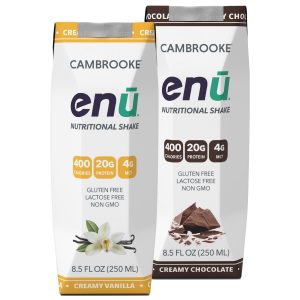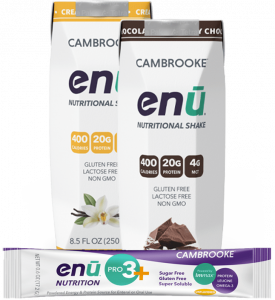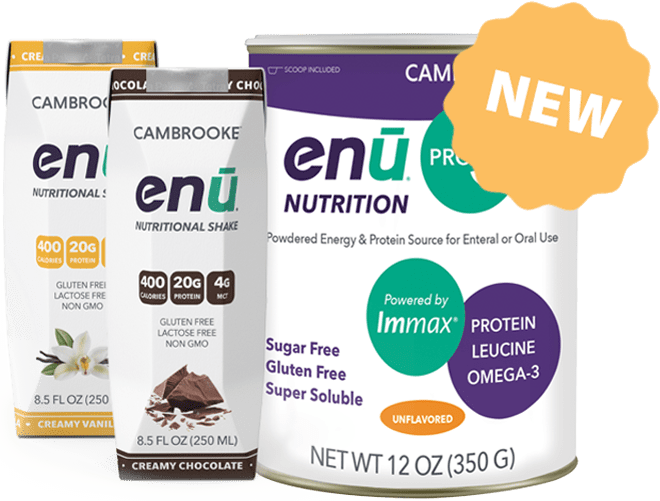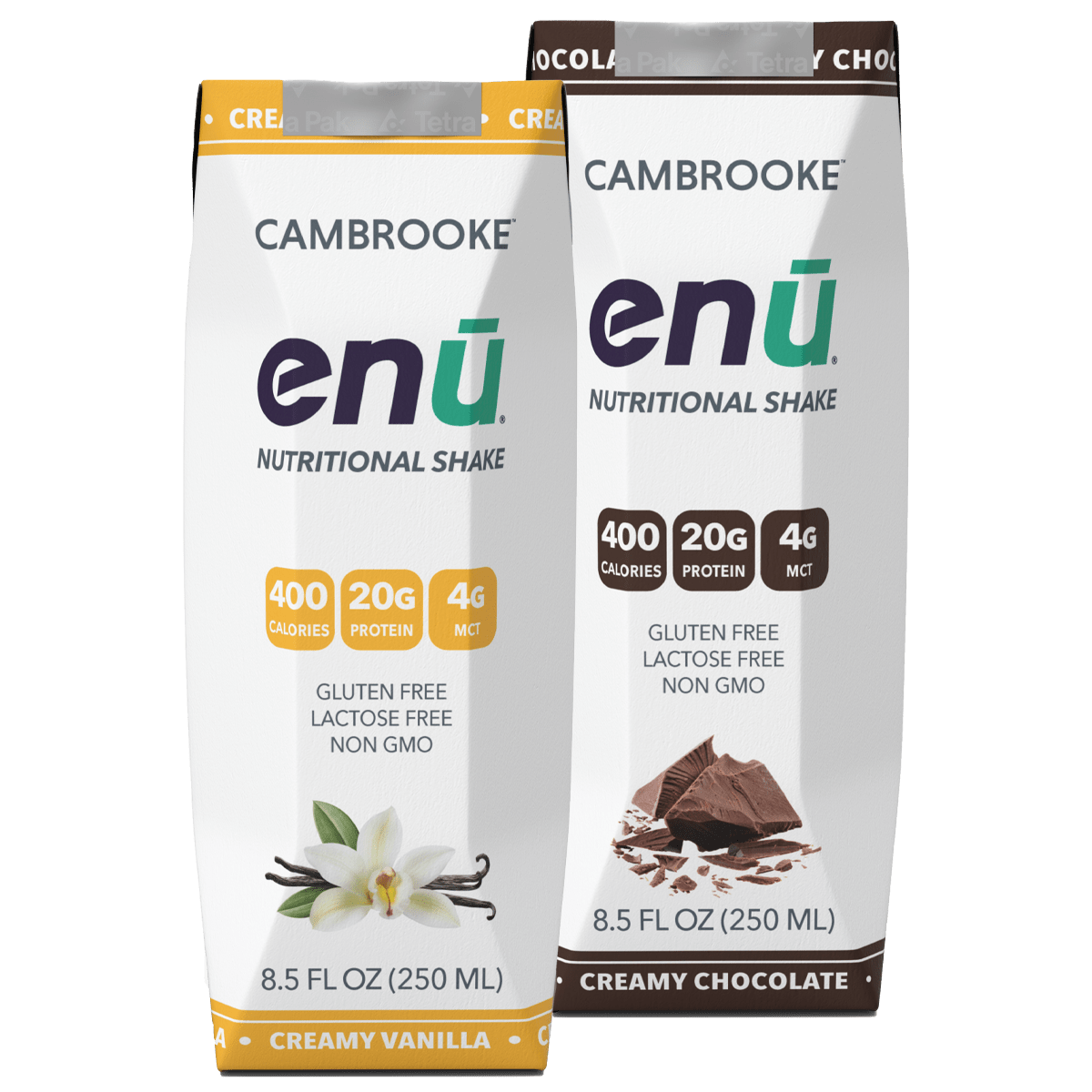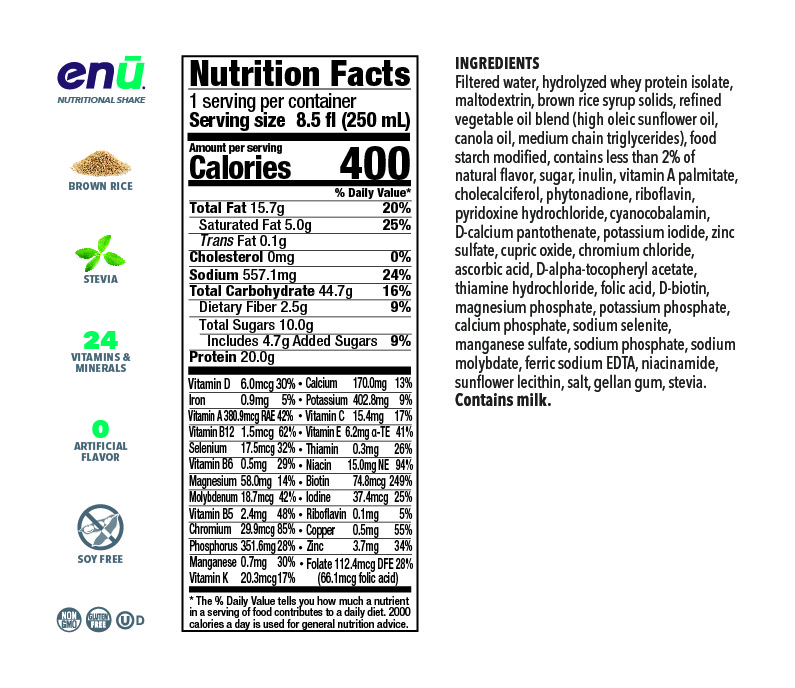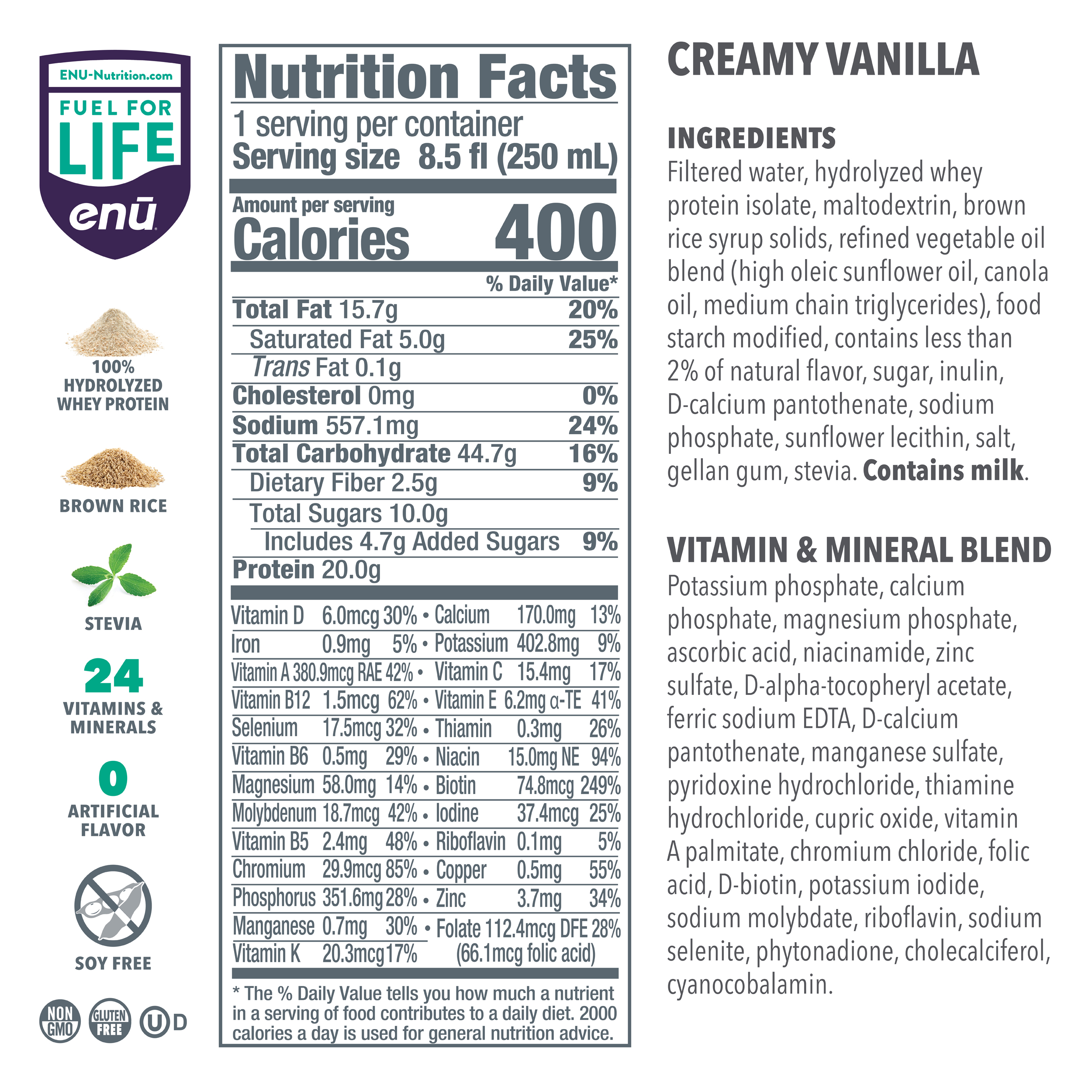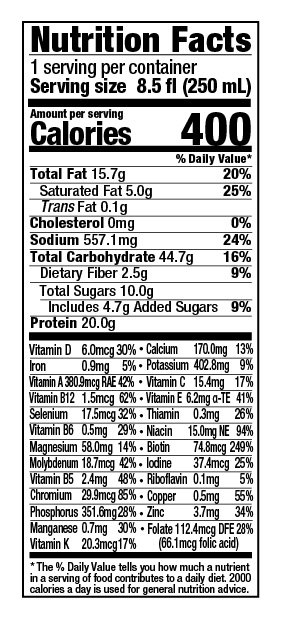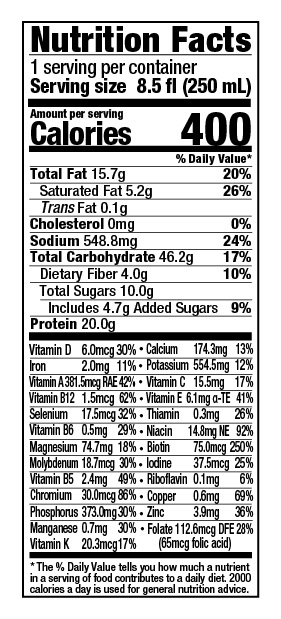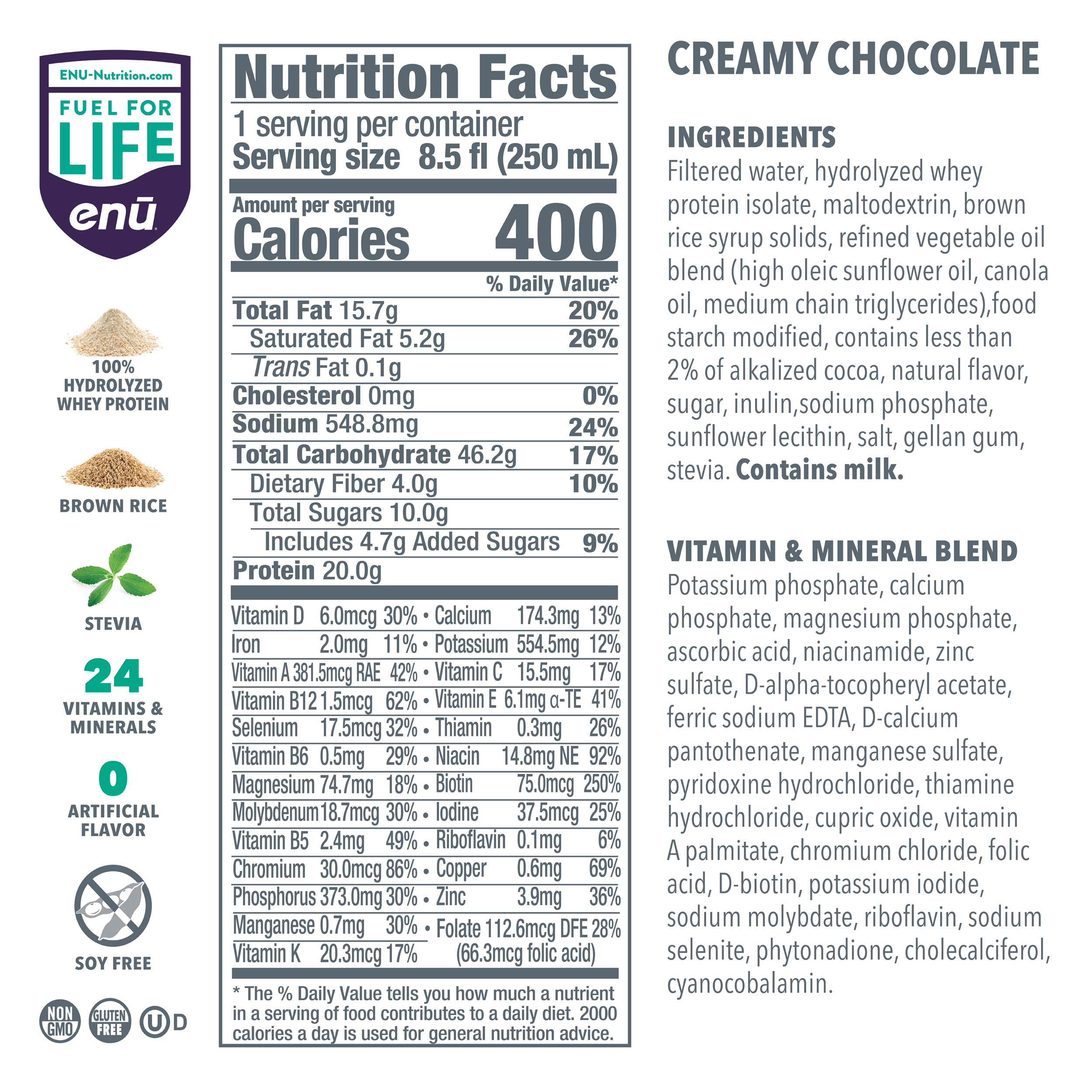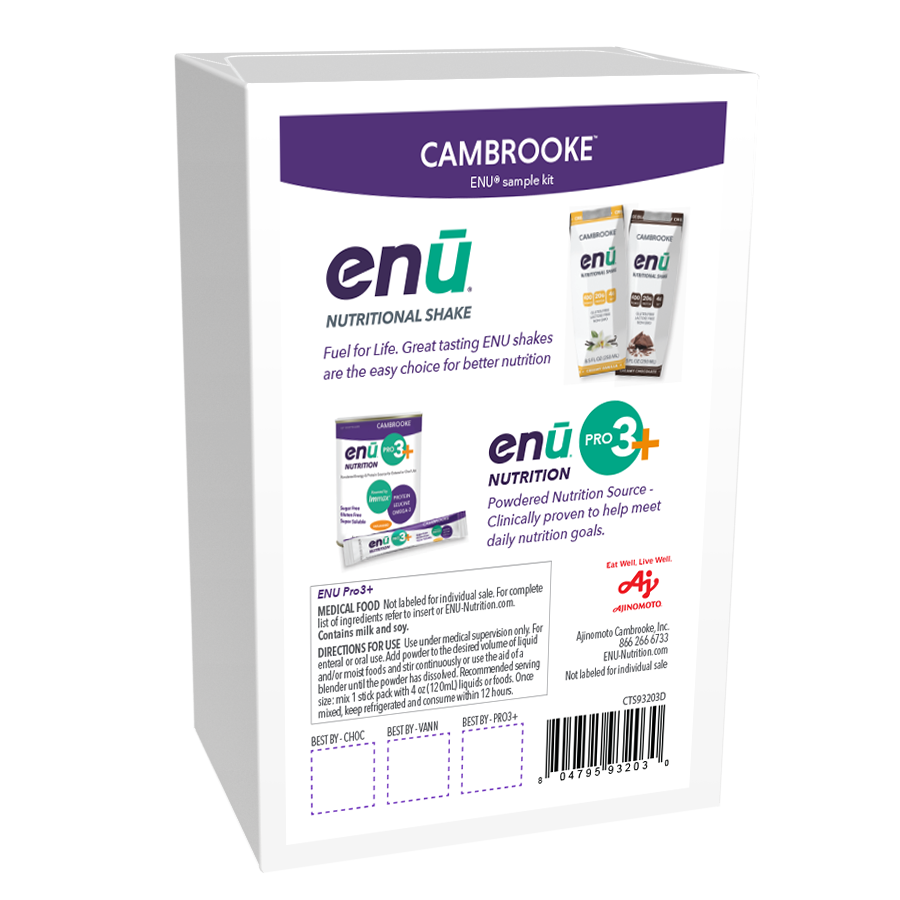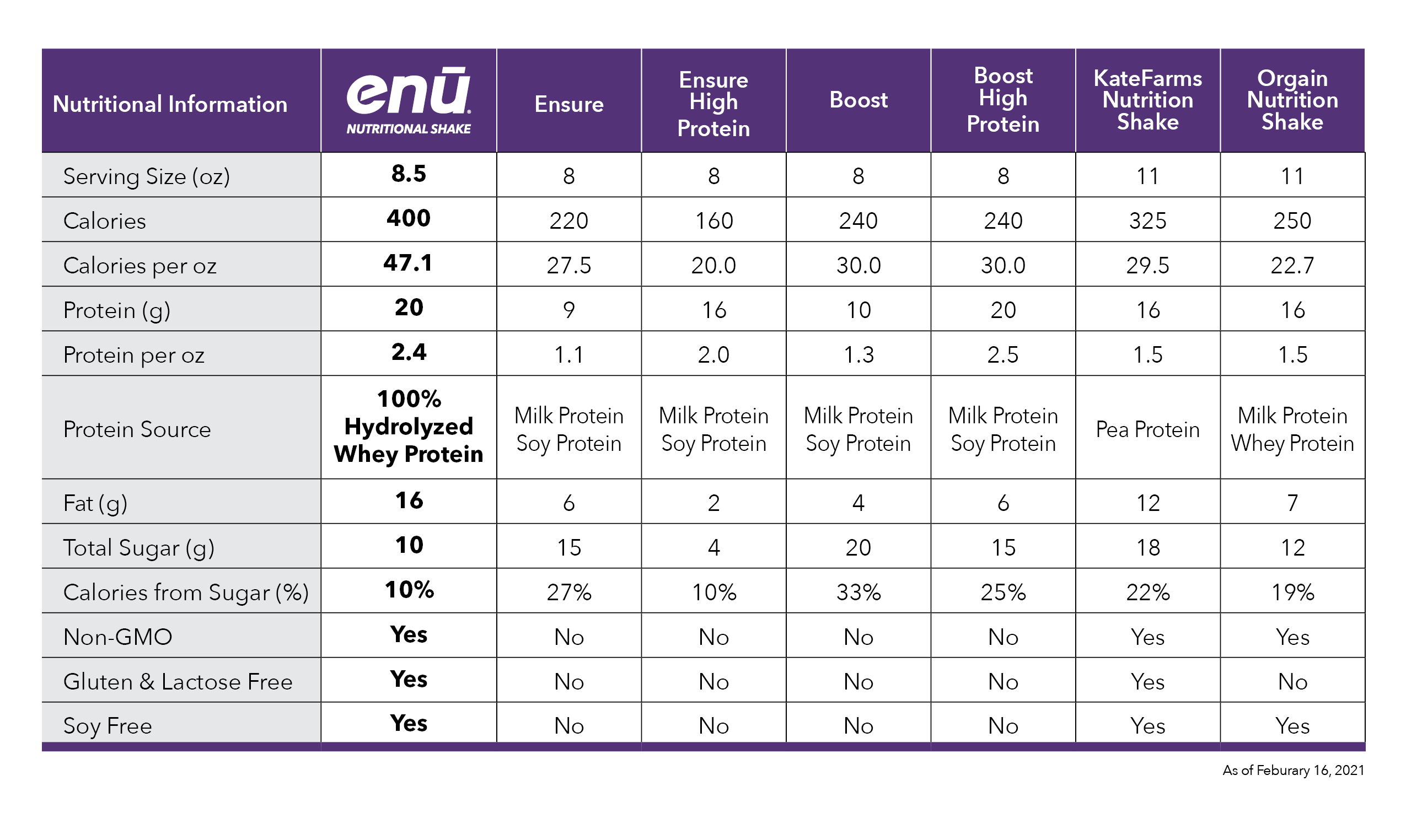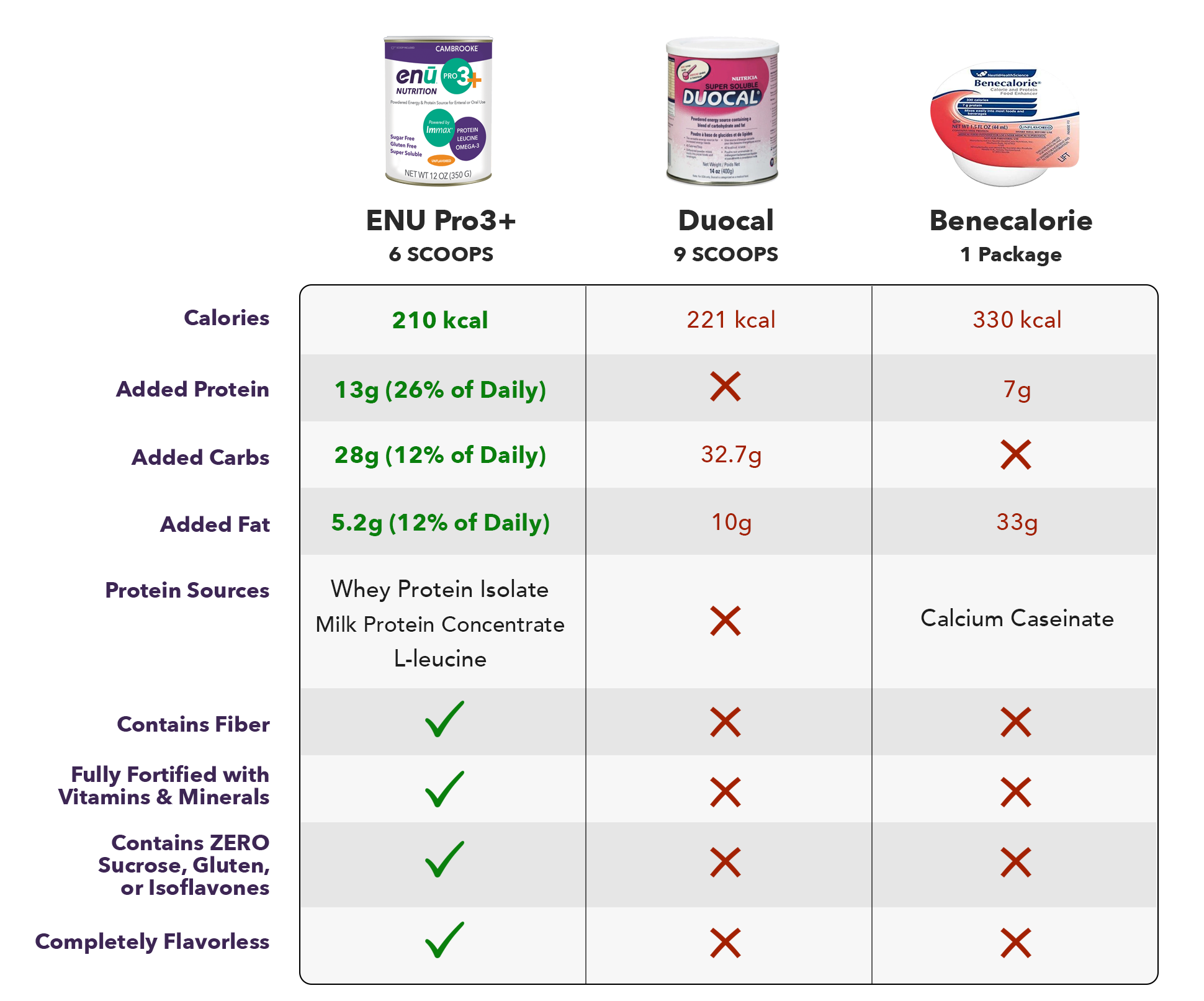
Get a FREE
ENU Intro Pack*
*Just Pay $2.00 Shipping
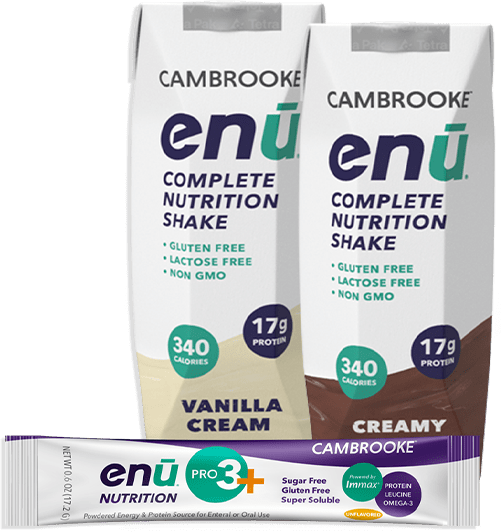
What Is Protein Isolate?
When choosing the best protein to help you meet your health or fitness goals, it can be easy to get overwhelmed by the choices available online or on the shelves of your local grocery store. Not only are there dozens of sources of protein readily available – from whey and soy to pea and brown rice – but each of these often come in their own varieties.
These sub-groups of protein generally use terms like “concentrate” and “isolate” to distinguish themselves, but what do these terms really mean, and how do they impact the effectiveness of your protein supplement? Read on from meal replacement shake company ENU to find out.
Common Types of Protein
Though a variety of protein supplements are available for purchase, some are more popular than others, often for good reason. Here are some of the more commonly used forms of protein supplements on the market today:
Whey Protein
This dairy-based protein source is derived from whey, the liquid part of milk cultivated as a byproduct of the cheese-making process. Though it was once discarded as unwanted waste, it has grown in popularity to become the most-used type of protein supplement for muscle recovery, thanks in large part to its appealing taste and relative ubiquitousness.
Whey is easily absorbed by the body after ingestion, meaning that it can be quickly put to use to synthesize new muscle tissue. Typically, whey is found most often in its concentrate form, though whey protein isolate and whey protein hydrolysate can also be found with a little effort.
Soy Protein
One popular vegan alternative to dairy- and meat-based proteins, soy protein is a common component of many meat substitutes – veggie burgers, for instance, or protein bars. Like whey, it is easily absorbed by the system, though it tends to have the slightly gritty taste associated with many plant proteins. Still, it is a source of lean, lactose-free and cholesterol-free protein that appeals to vegetarians and meat-eaters alike.
Pea Protein
Though less widespread than whey or soy, pea protein has quickly drawn attention for its complete amino acid profile and non-allergenic properties. Whereas dairy and soy products can cause reactions in those with food allergies or sensitivities, pea protein is generally considered safe for those consumers. It has also shown promise as a catalyst for muscle growth in those who undergo resistance training, though more studies are needed to cement this as fact.
Differences Between Protein Concentrate, Isolate, and Hydrolysate
Most products that contain some form of a protein additive or supplement will include one of several terms: concentrate, isolate, or hydrolysate. While these words may sound highly technical, the differences they indicate are actually pretty clear. Each comes with its own advantages and drawbacks, though all are beneficial in some way.
Concentrate
While different types of protein concentrate may contain different amino acids and other components, the methods behind their manufacturing is essentially the same. Whey protein concentrate, for instance, is the least processed form of whey protein. As a result, it contains more of the natural, non-protein nutrients – fat and lactose, especially – than other forms of the protein. This gives it a better flavor profile and more balanced nutritional value, but at the cost of protein content by volume. Whey protein concentrate is typically 70 to 80 percent protein; similarly, soy and other types of proteins are fattier and tastier in their concentrate form but offer less actual protein.
Isolate
As the name implies, protein isolate is a purer form of supplement in which the natural protein is further processed to isolate the protein itself. This gives a mixture that is usually at least 90 percent protein by volume, but at the cost of extra nutrients. While this may make it seem less attractive on its own than protein concentrate, protein isolate is an excellent addition to a well-rounded product like a meal replacement shake because it is complemented by other ingredients. If you want a pure source of protein, an isolate form is often your best bet.
Hydrolysate
Where the other two forms of protein distinguish themselves through protein content and overall nutritional value, hydrolyzed proteins offer advantages to those with certain allergies or other medical conditions. In essence, supplements such as whey protein hydrolysate undergo a process that renders them into a partially digested form – not in a literal sense, of course, but in such a way that it simply takes less effort for the body to use the protein once ingested. This makes it ideal for those with gastrointestinal issues or food sensitivities or allergies.
ENU Meal Replacement Shakes with Effective Whey and Soy Protein Isolates
Choosing a meal replacement shake or nutrition beverage that works for you can require some lengthy trial and error; alternately, you could simply try an ENU meal replacement shake. Every carton contains 20 grams of protein from whey and soy isolates along with healthy, unsaturated fats and complex carbohydrates for sustained energy and lasting satiation. To learn more about our products and how they can help you reach your health and fitness goals with nutrition shakes, visit us online or call us today at (855) 266-6733.
